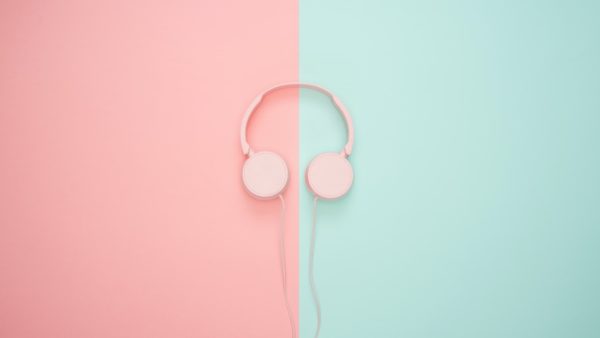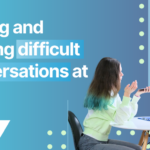Active listening is a key part of communication. Read this guide to learn about active listening and complete the quiz to test your knowledge!
When we think of communication skills we often think of someone who very naturally presents and speaks well, those people who make you stop and listen. World leaders, news reporters, tv presenters or our favourite youtuber’s tend to be really good at this. It might surprise you that communication isn’t all in the talking, it’s in the listening too.
We explored active listening in your Young Professional training but we want to delve a little deeper in this weeks challenge. Active listening is making sure you are fully concentrating on what other people are saying (and what they are not saying!).
To be able to communicate effectively you need to be paying full attention. Whilst it might seem silly you have to think of listening as something you actively do. Just assuming you are naturally listening won’t make you an A* communicator, you’ll miss things as your mind starts to wander.
Whether you are talking to friend, colleague or teacher there are certain ways of showing you are listening. You can show you are interested by listening attentively, giving eye contact and giving a nod in agreement or agreeing vocally. It can be daunting for a person to present even to just one person so an active listener can help them feel at ease.
An active listener :
- Pays full attention to what is being said
- Engages in the conversation with eye contact and nods of encouragement
- Waits until the person has finished talking and does not interrupt
Signs of active listening (without talking)
Smile – A smile goes a long way to showing you are listening and encouraging the speaker – this is sometimes known as positive encouragement or reinforcement
Eye Contact – This isn’t a staring competition but maintaining eye contact can show you are interested. Presenters will often try to make sure they are engaging with everyone in the room
Body language – we spoke about body language in first communication challenge but sitting forward can often show you are listening and mirroring people’s behaviour.
Fidgeting, looking at your phone, doodling or playing with your hands are signs you are distracted and not listening – it can also be a little bit rude!
Of course being a good communicator isn’t just about sitting in silence whilst someone talks, you can give positive reinforcements by agreeing with what is being said. You can also ask questions to show your interest and to get more information. You should wait until a natural break in the conversation (if you are speaking in an informal setting), if you are listening to a presentation the presenter will often invite questions at a point that suits them.
Let’s test what you know
What is active listening?

Please select 2 correct answers
Active listening is something you are always doing, and it’s also something you need to make the effort to do.
Sometimes it can take a lot of effort to give someone your full attention and your mind can wander. But listening is a big part of communicating well!
How can you show you are actively listening?

Please select 3 correct answers
You can show you are actively listening by smiling, mirroring behaviour, and making eye contact.
Using your body language shows you are focused on the person speaking and you care about what they have to say.
Complete this sentence. An active listener…

The answer is… an active listener gives their full attention to what is being said.
Asking questions and sharing your experience can show that you are listening, but jumping in and interrupting the person speaking does not. Wait until it is your turn to speak, then share what you have to say – and make sure it is relevant!
Also, it’s hard to do lots of things at once, and it shows you aren’t paying attention. Put distractions away, face the person speaking, and listen to what they have to say













